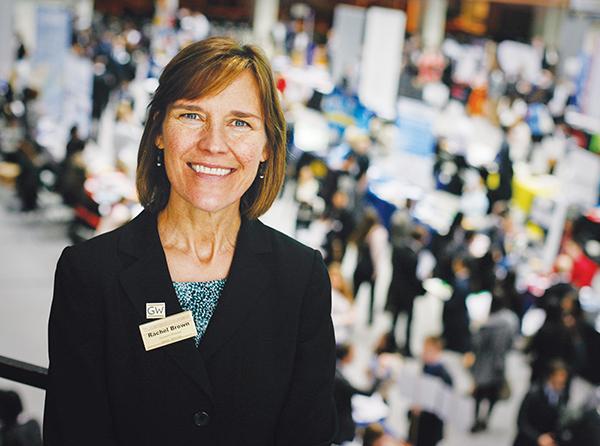
A key tool of GW’s $20 million career office has been an online program that lets students map out post-graduation options and improve job readiness.
But so far this year, not a single freshman has answered the survey’s questions or recorded their progress with the tool, illustrating a tough dilemma as GW faces increasing pressure to help students land jobs.
About one-quarter of this year’s 2,500 freshmen have attended a career services event, including job fairs and career consulting, according to the office. But no students have tracked their own progress using a portal on the GWork website, dubbed “My Career Success Plan,” which officials have touted as a way to engage more students in post-grad planning.
After taking one of the site’s career assessment surveys, students are then scheduled to speak with career consultants about the results.
Officials say promotion will be key to boost interest in the site, which has seen about 40 percent of freshmen log into the system.
“Marketing and outreach will continue to be a big priority for us – we are off to a good start but there is more work to do,” said Rachel Brown, assistant provost for university career services.
Brown said career staffers have set up tables during Welcome Back Week and presented ways to use the program in residence halls across campus. They are also working with supervisors in the student affairs office and Colonial Crossroads staffers to promote the site.
GW announced last academic year that it would spend $2 million each year over the next decade on career services, mostly on new staffers.
Many students do not know what the tool or its core assessment programs are, according to interviews with a dozen students around campus.
Freshman Mikala Moschella said filling out career aptitude tests and meeting with career counselors would be a good idea, but that she hadn’t heard anything about the program. She added that information tends to get lost in a flood of InfoMail emails.
She said the University should take additional steps to reach out to students, such as sending more personalized emails through academic counselors.
Josh Hess, a freshman international affairs major, also said he had not used the tool. Hess said students would be more willing to take the assessments if the University advertised the program more aggressively.
“I may have seen a banner on a website, maybe, but that’s the extent of it,” he said.







